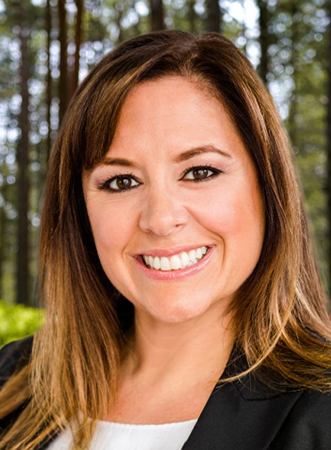Couples Therapy

Committed relationships are complex and challenging. If you’d like to repair or rekindle your intimate bond, couples therapy may be the solution. Couples therapy can help you and your partner reignite, or perhaps discover for the first time, a sense of:
- Appreciation
- Understanding
- Connection
- Humor
- Adoration
- Security
- Intimacy
- Trust
Are you experiencing
- Frequent misunderstandings
- Arguments that escalate without resolution or repair
- Stonewalling or shutting down
- Loss of trust due to secrets, lies or betrayal
- Sexual dissatisfaction or mismatched libidos
- Parenting stress or differences in parenting styles
- Tensions over division of labor
- Power struggles
- Major life transitions
- Issues with in-laws or extended family
- Pre-marital concerns
We can help you
- Feel seen and heard by your partner, even when you disagree
- Alter the invisible dynamics that cause communication problems
- Take the toxicity out of your arguments
- Close the “trust loopholes” in your relationship
- Talk about anything with your partner without fear or hesitation
- Make parenting easier and more effective
- Create an environment that feels comfortable and peaceful to be in
- Have each other’s back when dealing with hardship, obstacles or extended family
- Strengthen your friendship and feel like your partner has your back
- Reverse negative patterns that tend to erode relationships
- Improve the vibe of your relationship through small changes that increase positive feelings
Manage Conflict Better
COMMUNICATE MORE EFFECTIVELY
INCREASE POSITIVE EMOTIONS
ENHANCE YOUR FRIENDSHIP
Dr. Agree approaches your relationship from multiple perspectives, including Gottman Method Couples Therapy and a Mentalization-Based approach to couples and families.
The Gottman Method is based on over 40 years of research with couples. The Gottmans have discovered what leads relationships to fail and characteristics that help relationships succeed. Using this method, Dr. Agree will guide you through exercises that teach you to communicate with your partner in ways he or she is more likely to hear and understand.
The Mentalization-Based approach focuses on expanding your capacity for empathy towards yourself and your partner. It also helps you identify and begin to question assumptions that cause you to interpret your partner’s behavior in ways that make you feel inadequate or upset, so that you can see your relationship in a more favorable light. For more information on MBT, click here.
Dr. Agree is pleased to work with couples of all genders, sexual identities and preferences, to help them improve their communication skills and overall relationship satisfaction.
Reconnect With Your Partner Today
| Feature | Other Therapies | Dr. Agree’s Approach |
|---|---|---|
| None or simplistic | Multi-faceted to address reflective functioning, attachment patterns, historical influences, trust, friendship and relationship culture | |
| Primarily addresses complaints | Addresses problematic unconscious dynamics, mentalizing deficits, and destructive verbal and nonverbal communication patterns | |
| One-size fits all, Skills-based exercises | Interventions targeting the couple’s unique understanding of self and partner, lapses in empathy and precise communication difficulties. | |
| Improvements based on recall of rules and behavior modifications that tend to fade over time without practice. | Improved emotion regulation, trust, friendship and positive emotionality that relies more on personality change than simple recall. | |
| Varying, depending on practitioner | Extensive experience with: work-life balance demanding careers, entrepreneurship, marriage, parenthood, divorce, remarriage, blended families, special-needs children |
Talk to a couple’s therapist today!
Inquire NowFREQUENTLY ASKED Questions
Can couples therapy really help us?
Yes, couples therapy can be quite effective, especially when both partners are engaged. It can help you improve communication, rebuild trust, deepen emotional connection, and manage conflict in a healthier way. Even couples on the brink of separation can find new clarity and direction through therapy.
What if my partner doesn’t want to come?
Sometimes one partner is hesitant, and that’s Ok. You can still begin on your own. One person can make a huge difference in a relationship. Working with a therapist individually can help you shift dynamics in the relationship that create lasting improvements. And, your interest in therapy might stimulate your partner’s interest in joining, or beginning his/her own individual therapy.
Will the therapist take sides?
No. We take neutrality in couples therapy very seriously. No one likes to be ganged-up on, and it’s not helpful in couples therapy. Our goal is not to determine who’s “right” or “wrong,” because that’s not the problem. There is no objective standard in a relationship. Rather, the standard is what each of you is willing to live with. The goal of couples therapy is to help you understand one another better and find ways to be sensitive to each other so you can both get what you need in the relationship.
What happens in a typical session?
First, we assess the relationship through various processes so that we get a good understanding of what’s really going on, because the problems that bring you to couples therapy are usually not as obvious as it may appear. As we are building our understanding of you, you are also developing a deeper understanding of yourselves and your relationship. After that, the sessions are structured based on your individual needs. We might discuss a recent interaction that leads to an exploration of certain patterns in your relationship. We’ll identify areas of conflict or disconnection, and provide exercises and tools to help you communicate more effectively.
How long does couples therapy take?
The length of therapy varies depending on your needs and goals. Many couples begin to see progress within 8–20 sessions. Some issues can be resolved relatively quickly. Others, such as long-standing conflict or rebuilding trust after betrayal, may take longer.
What if we argue during the session?
That’s completely OK. Many couples do, and often it’s useful because it allows us to see how your disagreements go awry. This gives us an opportunity to intervene to help you de-escalate and communicate in more effective ways. We’ll also explore what’s going on beneath the surface that leads to arguments so you can avoid them altogether.
Are we too far gone for therapy to work?
It’s never too late to seek therapy for an ailing relationship. Years of negative patterns can lead to a sense of hopelessness, but even couples facing serious challenges—like infidelity, emotional distance, or thoughts of separation—can alter the course of their relationship. If you’re interested in it, then it’s worth trying. Couples therapy can also help you develop more clarity about the relationship and how you feel about it.

Is individual therapy or couples therapy right for me?
When the basis for coming to therapy is a relationship you wish to maintain and improve, couples therapy may be helpful. However, couples therapy is not always the best route. Under some circumstances, individual therapy with one partner is more effective in altering the dynamics of a relationship than couples therapy.
If you are unhappy in a relationship and are naturally frightened about what the future could hold, Dr. Agree invites you to contact her for an individual consultation. Here, in a supportive and compassionate environment, you can gain a better understanding of the issues you face, and make a more informed decision about how to proceed.



